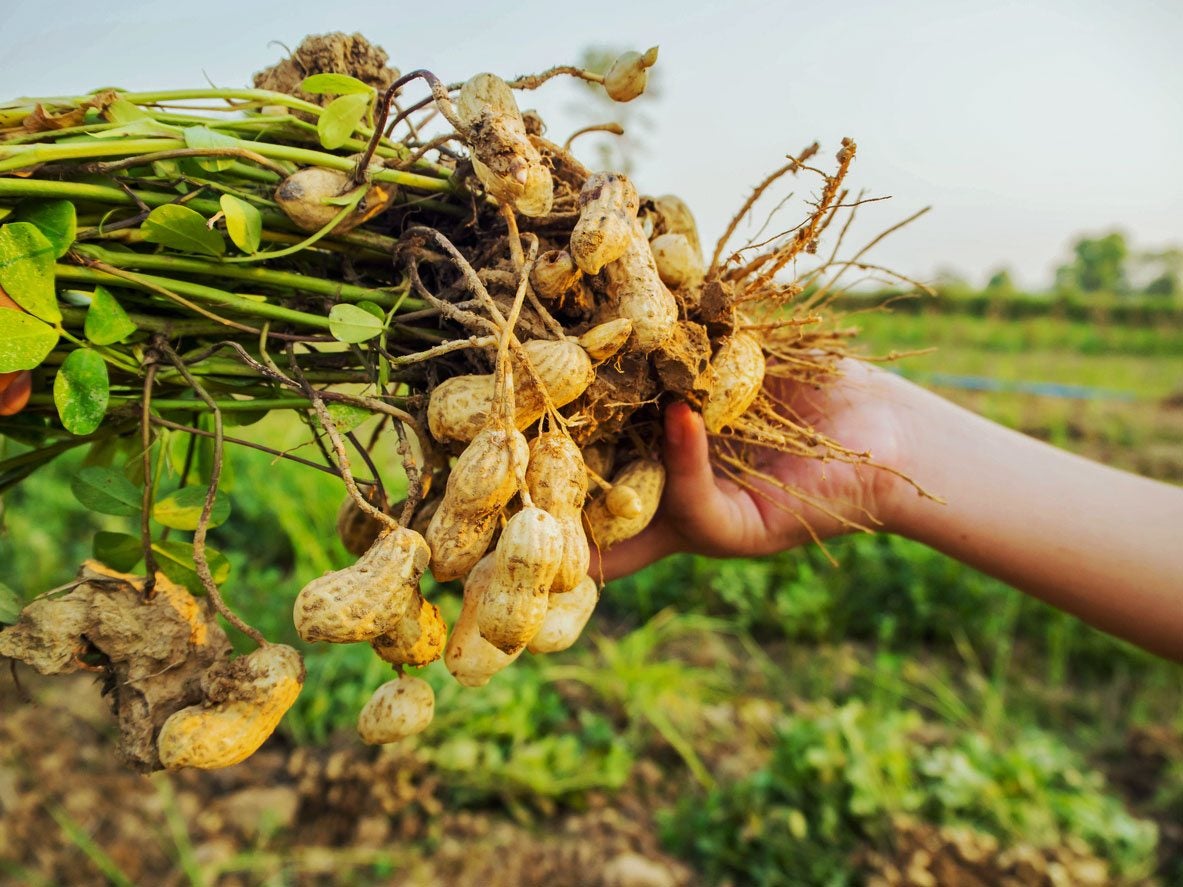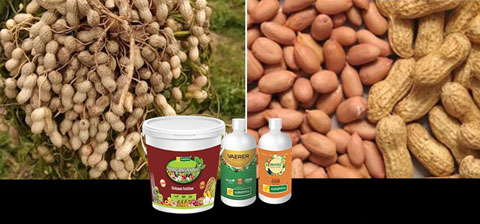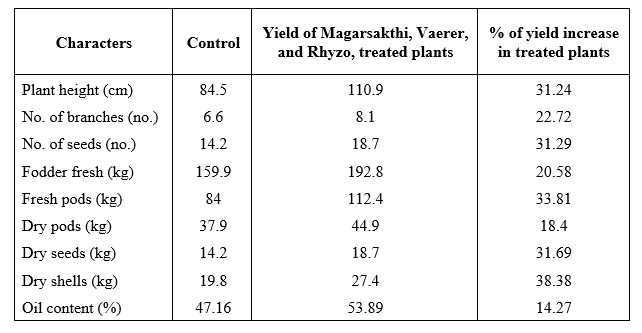Blog
- Blog
- Home
Harnessing Biostimulants to Boost Peanut Crop Productivity

Introduction:
Peanut, scientifically known as Arachis hypogaea or groundnut, stands as a cornerstone in the global agricultural landscape, holding economic importance as a versatile oilseed, feed, and food crop. Thriving predominantly in tropical and subtropical regions worldwide, peanuts contribute significantly to various industries and play a pivotal role in addressing malnutrition challenges in developing nations. Despite their economic prowess, peanuts encounter an array of challenges during cultivation, ranging from nutrient deficiencies and environmental stressors to diseases and pests.
Challenges in Peanut Cultivation:
Nutrient imbalances, encompassing deficiencies in nitrogen, phosphorus, and potassium, coupled with water scarcity, extreme temperatures, and susceptibility to diseases such as early and late leaf spot, rust, and viral infections, pose persistent threats to peanut crops. These challenges can manifest as stunted growth, reduced yields, and overall crop damage. Climate variability, with its unpredictable frosts, prolonged rainfall, and soil-borne issues such as damping-off and root rot, further complicates the cultivation process. Addressing these multifaceted challenges necessitates a holistic approach, incorporating precise soil management, strategic irrigation practices, disease and pest control measures, and the deployment of resilient peanut varieties.
The Role of Biostimulants:
In the pursuit of enhancing peanut crop productivity, an emerging frontier lies in the strategic use of biostimulants. Magarsakthi, Vaerer, and Rhyzo, biostimulants extracted from natural marine biopolymers enriched with nutrients and plant growth regulators, showcase considerable potential in elevating the quality and yield of groundnut pods.

Figure 1: Effects of Magarsakthi, Vaerer, and Rhyzo on the growth of the peanut
Biostimulant Impact on Peanut Growth:
Research findings underscore the positive impact of biostimulants on various growth parameters of peanut plants. Those treated with Magarsakthi, Vaerer, and Rhyzo exhibited significant improvements in plant height, the number of branches, and the number of seeds compared to their untreated counterparts. Notably, the root systems of treated plants displayed a higher number of lateral branches with nodes, indicative of a robust and well-developed root structure.
Enhanced Yield and Quality:
The application of biostimulants translated into tangible benefits in terms of peanut yield and quality. Treated plants demonstrated a higher fresh pod weight, boasting a remarkable 33.81% increase in yield compared to the control group. The seeds of treated pods were not only larger but also more uniform in size, underscoring the improved quality attributes brought about by biostimulant application. Dry pod weight, dry seeds, and shells also experienced significant increases in the biostimulant-treated plants, signaling a positive impact on overall peanut production.
Beyond the quantitative improvements, the biostimulant-treated plants exhibited a more accelerated growth cycle. The first flower was observed on the 30th day of plantation in the treated plants, while the maximum flower count was noted after 9 weeks in the control plants. This temporal advantage could prove crucial in optimizing the flowering, pollination, and pod development stages, ultimately contributing to a more robust and timely harvest. Moreover, the treated plants displayed a more extensive lateral branching pattern in the root system, indicating improved nutrient absorption and overall plant health. This enhanced root architecture not only supports the plant’s immediate growth but also establishes a foundation for long-term resilience against environmental stressors.
Table 1. Vegetative growth, yield and oil content of peanut applied with bio-stimulant Magarsakthi, Vaerer, and Rhyzo

Economic Implications:
The economic implications of incorporating biostimulants into peanut cultivation are substantial. In terms of fresh pod weight, the Magarsakthi, Vaerer, and Rhyzo treated plants demonstrated a significant increase, with a mean of 112.4 kg compared to the control’s 84 kg. This resulted in a notable 33.81% higher yield in the treated group. The economic viability of peanut farming is further emphasized by the increased dry pod weight and the improved yield in dry seeds and shells in the biostimulant-treated plants. The oil content, a crucial factor for edible and industrial uses, also showed a substantial increase in both plants, with the biostimulant-treated group yielding 14.27% more than the control.
Environmental Considerations:
The use of biostimulants not only enhances peanut productivity but also aligns with sustainable agricultural practices. By optimizing plant growth and development, biostimulants may contribute to resource efficiency, requiring less water and fertilizers for comparable or increased yields. Additionally, the potential for improved disease resistance and pest tolerance in treated plants may reduce the need for chemical interventions, promoting environmentally friendly farming practices.
Conclusion:
As the global demand for peanuts continues its upward trajectory, optimizing crop productivity emerges as a pressing necessity. Biostimulants, such as Magarsakthi, Vaerer, and Rhyzo, present a promising solution to the myriad challenges faced by peanut cultivation. By harnessing the power of these natural marine biopolymers, farmers can potentially unlock higher yields, improved quality, and more resilient peanut crops. In the ever-evolving landscape of agriculture, embracing innovative approaches like biostimulant usage becomes imperative for sustainable and productive peanut farming practices. As research in this field progresses, the integration of biostimulants into mainstream agricultural practices may prove to be a transformative step towards a more resilient and efficient global peanut industry.
Recent Post
Contact Details
info@auraphyll.com
